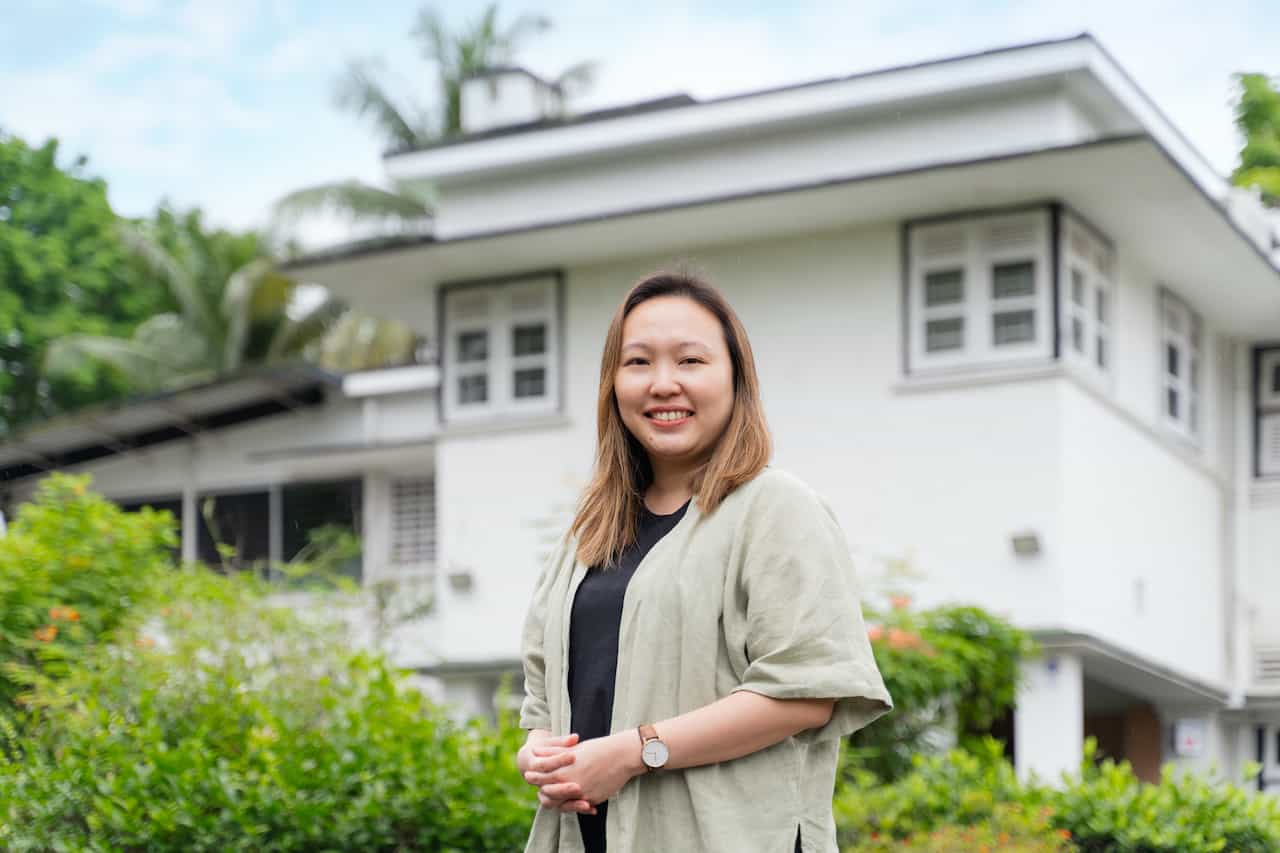
The Future is Female > Dara >
She has been journeying with Dayspring girls for a decade
Dara Chee began as a Mentor at HCSA Dayspring Residential Treatment Centre, progressed to Residential Manager, and then took on the role of Assistant Director of Clinical and Programmes before becoming Deputy Head of Home. In 2021, mummy duties beckoned, and Dara decided to go part-time as Treatment Lead. Here, she shares about the therapeutic work at Dayspring and her evolving roles through the years.
Q: Congrats Dara on being a mummy! How has this new experience been for you?
Dara: It has been fun! It’s a totally different focus to look after my own now and bring up a human being from scratch. One thing remains: my Dayspring work demanded 101% of me. Being a mummy is going to be just as demanding!
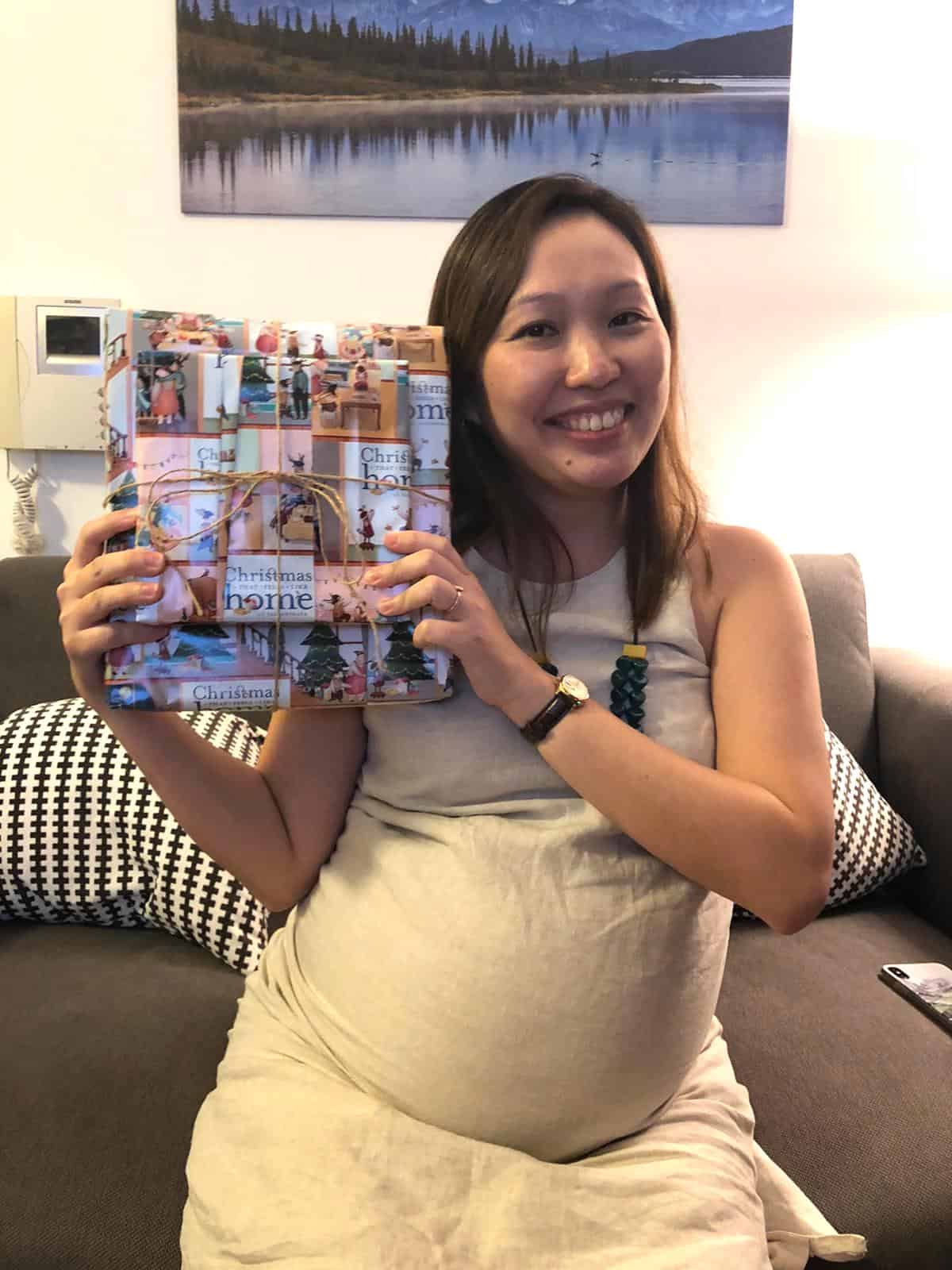 Dara glowing as a mummy!
Dara glowing as a mummy!
Q: Before you gave birth, you were Dayspring’s Deputy Head of Home. What was one significant moment for you in this role?
Dara: My role as Deputy Head of Home was to assist Maria, Dayspring’s Head of Home. Together, we led the whole team at Dayspring, which includes the staff as well as the clinical team comprising case workers and psychologists.
The most memorable mission we had was to lead change management for the entire centre. In 2017, Dayspring had to transit from our Therapeutic Milieu programme to the Therapeutic Group Home setting. The latter had received endorsement that year from the authorities, namely the Ministry for Social and Family Development, as an official model in Singapore’s residential care landscape.
We had to learn about the new setting ourselves while motivating staff to adopt it. Because of these two concurrent mega tasks in hand, you could say the transition was very challenging for us.
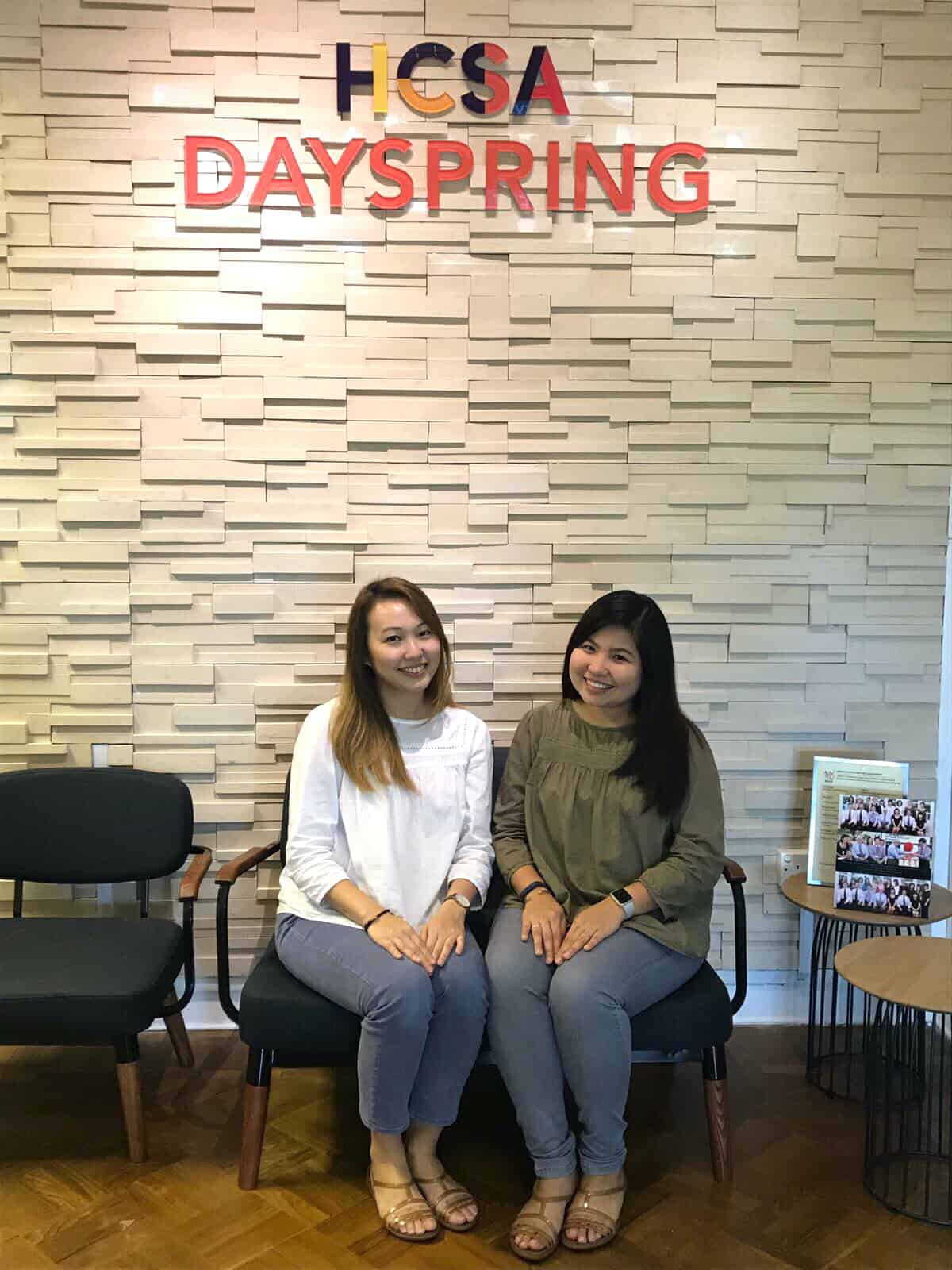 Dara and Maria!
Dara and Maria!
Q: You grew a lot from this milestone!
Dara: Yes, I grew a lot professionally and personally. Professionally, in order to be more equipped, I took up a post-graduate diploma in clinical supervision. I was managing case workers and I wanted to better care for them, so that they, in turn, could better care for our girls – a sort of ripple effect. Through the clinical supervision course, I learnt ways to emotionally and mentally support our case workers, such as by helping them to process feelings and addressing team morale.
Personally, I gained more clarity about core values: for example, for me as well as in Dayspring, the focus has always been on relationships – it makes life and work meaningful, and it is also the bedrock of leadership.
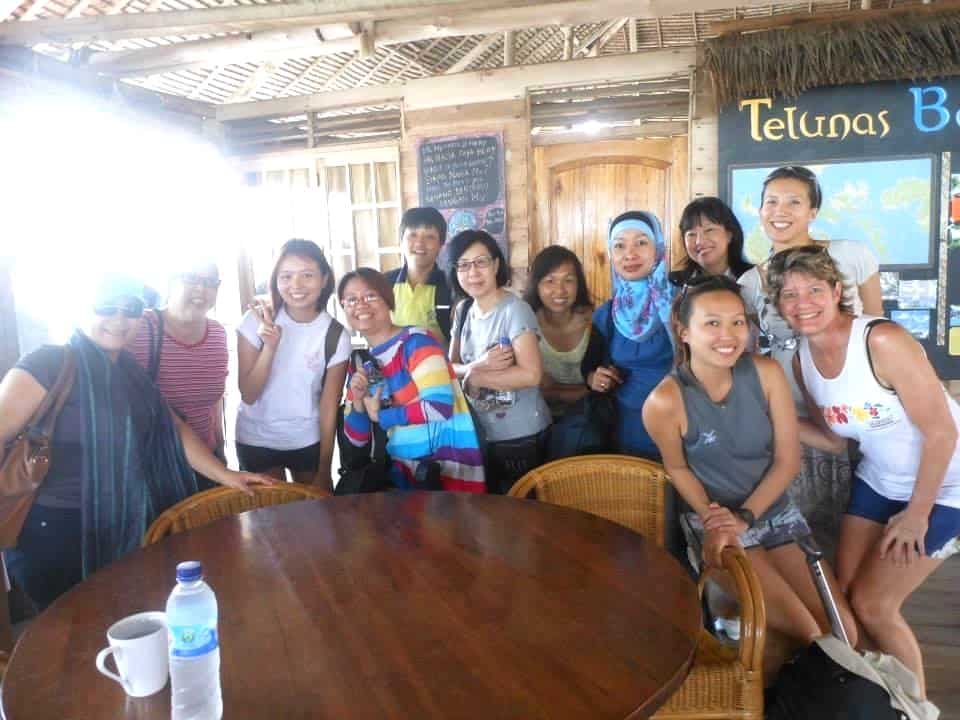 Dara with the staff of HCSA Dayspring Residential Treatment Centre at the 2013 Telunas camp.
Dara with the staff of HCSA Dayspring Residential Treatment Centre at the 2013 Telunas camp.
Q: Now, you’re in a new season. Tell us more about your new part-time role as Dayspring’s Treatment Lead.
Dara: This role was born from the transition we made to the Therapeutic Group Home setting. Under any setting, there needs to be a programme, and the authorities decided on Trauma Systems Therapy (TST). The TST model was developed by a team from New York University, which Maria and I received training from.
Last year, we were certified to supervise and lead TST, which brings me to my current role. With the certification, I can now support the next generation of TST experts, and that’s what I’ll be doing as Treatment Lead!
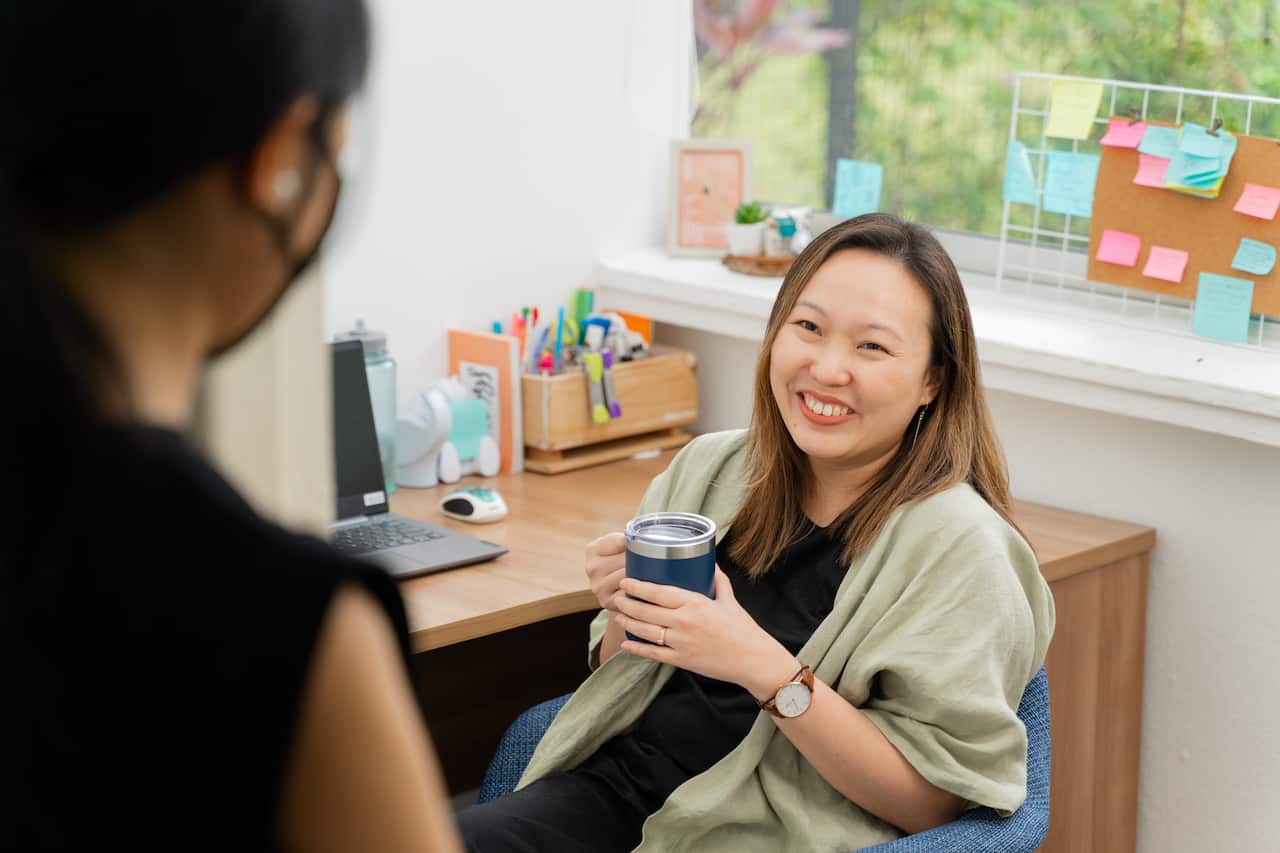 Dara in her new role.
Dara in her new role.
Q: That’s a lot of change in just a few years. What do you feel about the transition to a new approach?
Dara: There are pros and cons to any approach. Trauma is also complex – there is no perfect approach for any case.
A good therapy model provides the girls with a structured environment to heal in. It also gives them the tools to move on in life after Dayspring; for example, it should equip the girls with methods of emotional regulation and the skills to discern safe environments for themselves.
The therapy model should also help the clinical team with overall case direction – that is, how the therapy is implemented and how they can work with the girls.
Q: Before these changes, what was life in Dayspring like?
Dara: I would describe our earlier years as ‘adventurous’! I enjoyed being part of the pioneering work that Dayspring was doing: we were a new team, we were independent, we were launching a first-of-its-kind small home setting in Singapore, we were growing our programme and training people. It was a wild ride!
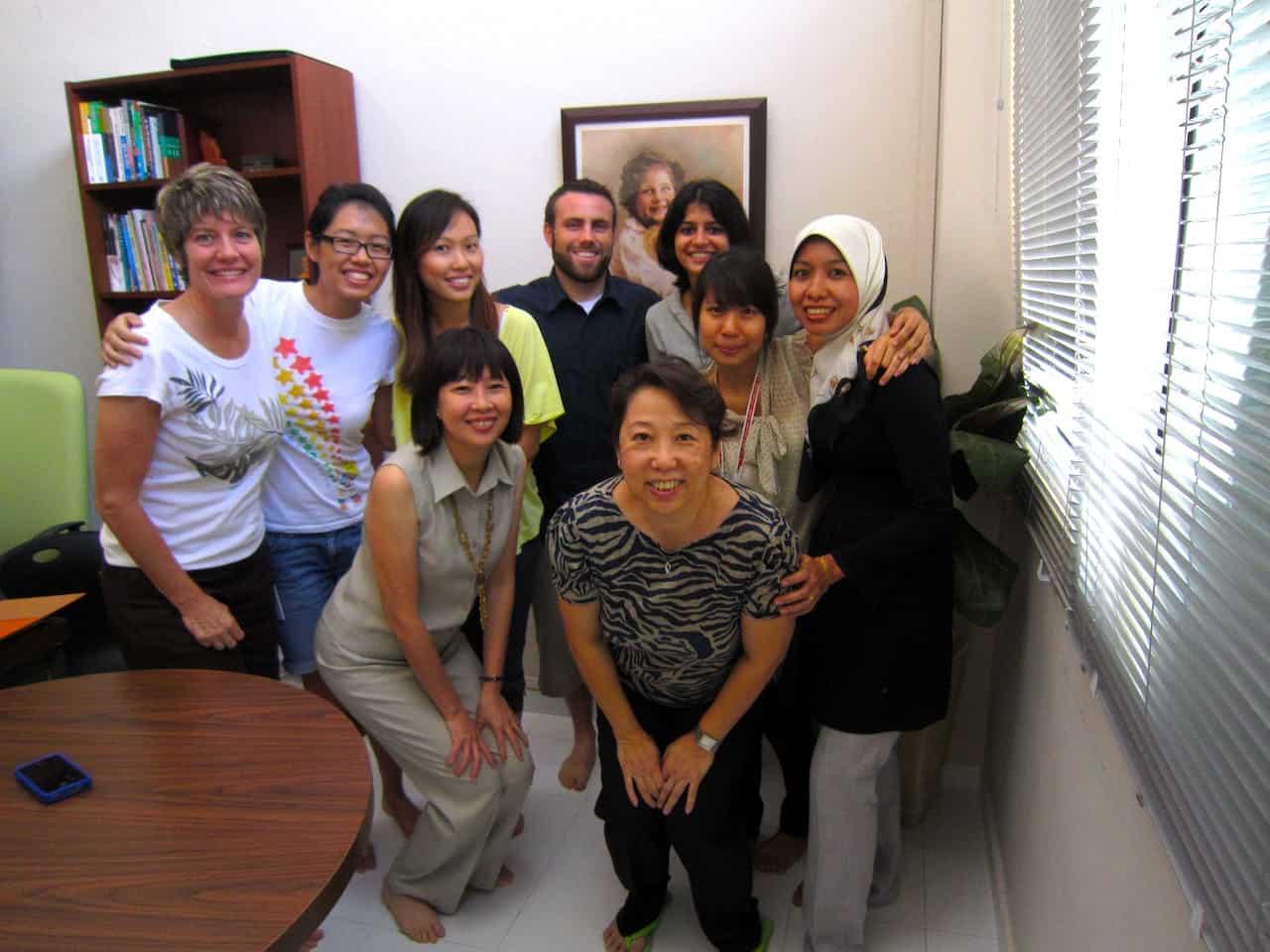 Dara and staff receiving training in 2011 from New Haven, a US-based Residential Treatment Centre.
Dara and staff receiving training in 2011 from New Haven, a US-based Residential Treatment Centre.
Q: What are some of your most cherished memories?
Dara: One unforgettable experience has been starting the annual therapeutic camp at Telunas in Sugi Island with Cathy Livingston, Dayspring’s former Clinical Director.
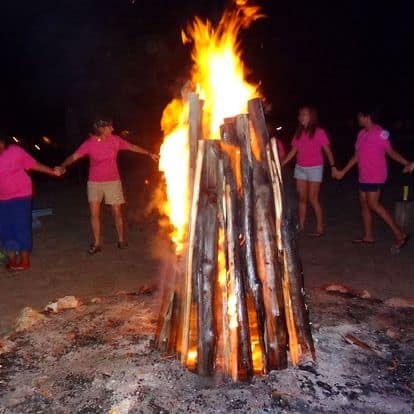 We’re talking pre-pandemic times. From 2011 to 2018, we brought the girls overseas to this camp, where we would witness everyone deeply transformed. There are countless memories of staff and girls conquering fears, opening up, bonding over campfires, doing community service at the local villages and just returning to Singapore majorly changed.
We’re talking pre-pandemic times. From 2011 to 2018, we brought the girls overseas to this camp, where we would witness everyone deeply transformed. There are countless memories of staff and girls conquering fears, opening up, bonding over campfires, doing community service at the local villages and just returning to Singapore majorly changed.
For example, there was a girl who was afraid of jumping off the jetty. She waited for the next camp to do just that – and she did it! It may seem like a simple activity, but for her, this tall, scary jetty represented her fears and she conquered them that day.
With nature all around, Telunas had a wholly therapeutic environment for the girls to truly disengage themselves from the anxieties they had in urban Singapore. In this state of mind, they could better rewire their brains with positive experiences or release tension in their bodies through the outdoor activities.
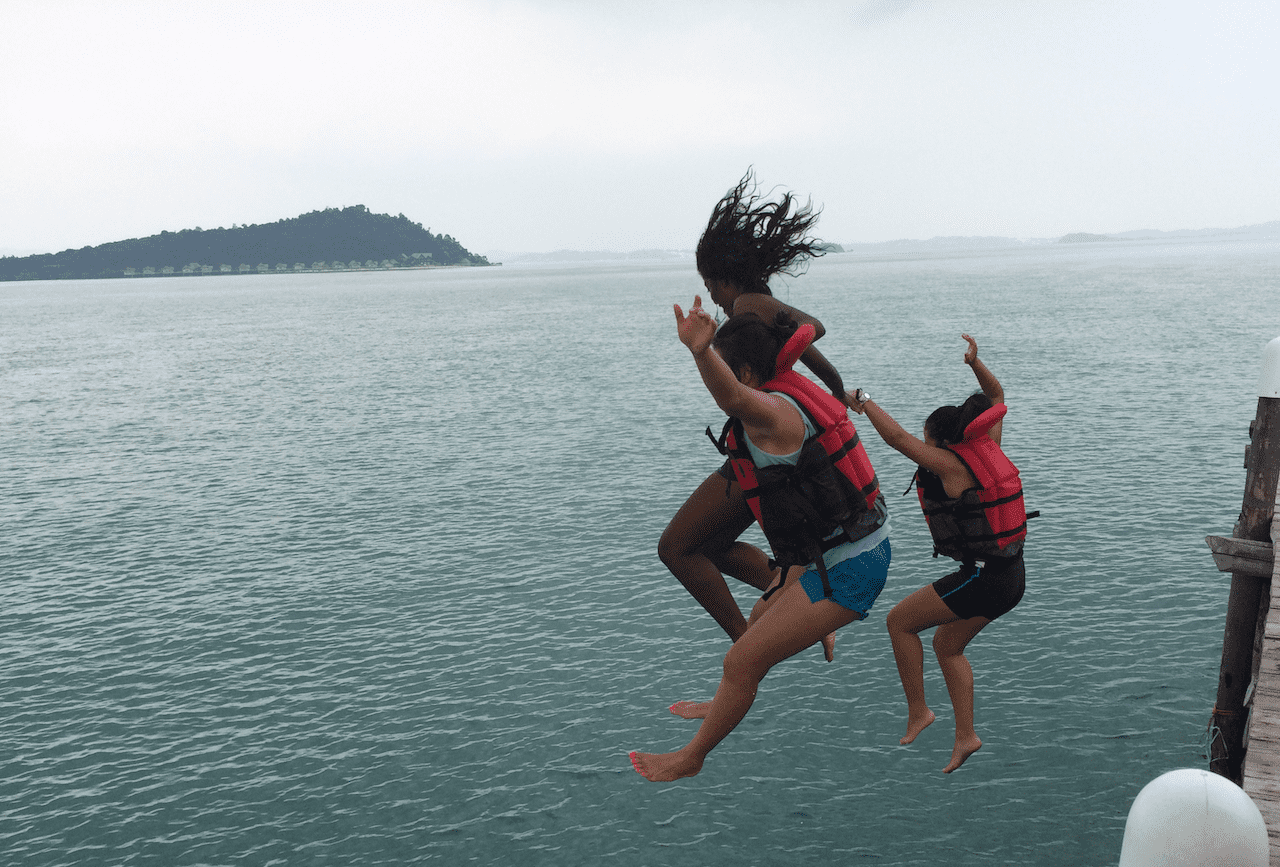 The girls overcoming their fears at the Telunas camp.
The girls overcoming their fears at the Telunas camp.
Q: The Dayspring girls are certainly overcomers. What else about them impresses you?
Dara: Our girls make the best tour guides! So, we ran an exchange programme with New Haven Residential Treatment Centre, which is based in Utah, USA. The New Haven girls would visit Singapore, and our Dayspring girls hosted them, prepared wonderful presentations and guided them in fun cultural tours. It was also heart-warming to see them bond: they discovered that even though they lived oceans apart, they had common life experiences.
Q: 10 years of walking alongside Dayspring girls make for a long and fruitful journey. What are some of your reflections looking back on this work?
Dara: So much about this journey has to do with the Dayspring team! I really enjoy having them pop by the office for a coffee chat, being there for them through their struggles and just growing as a family.
Also, I began working in Dayspring as a Mentor, where I had to be with our girls throughout my shift. I was journeying right beside the girls – I feel that this was what I started with and it will also be what I’ll end up doing. It’s the most purposeful part of the work: going into the valley of brokenness with them and then emerging from it to a place of acceptance and hope. It’s very real stuff.
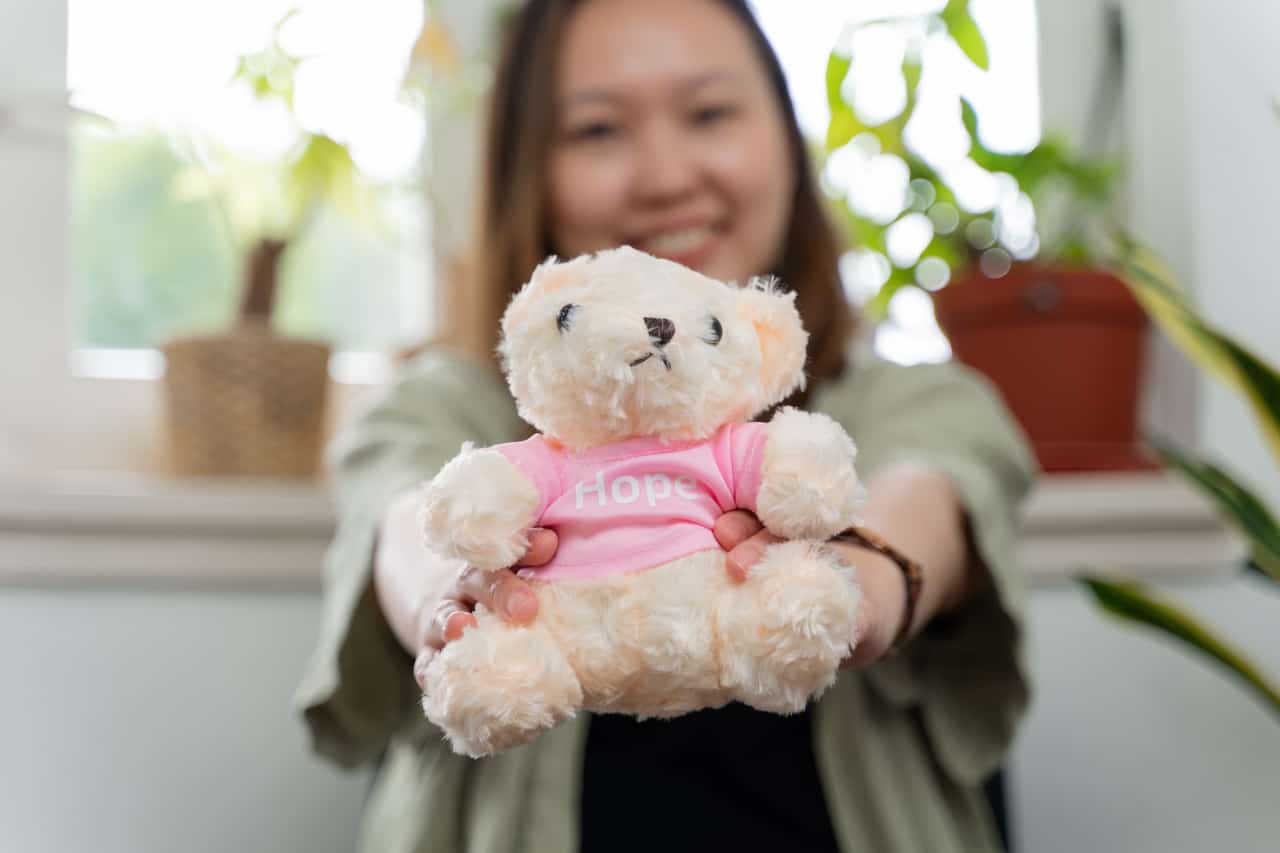 Dara’s work centres heavily on the theme of hope.
Dara’s work centres heavily on the theme of hope.

